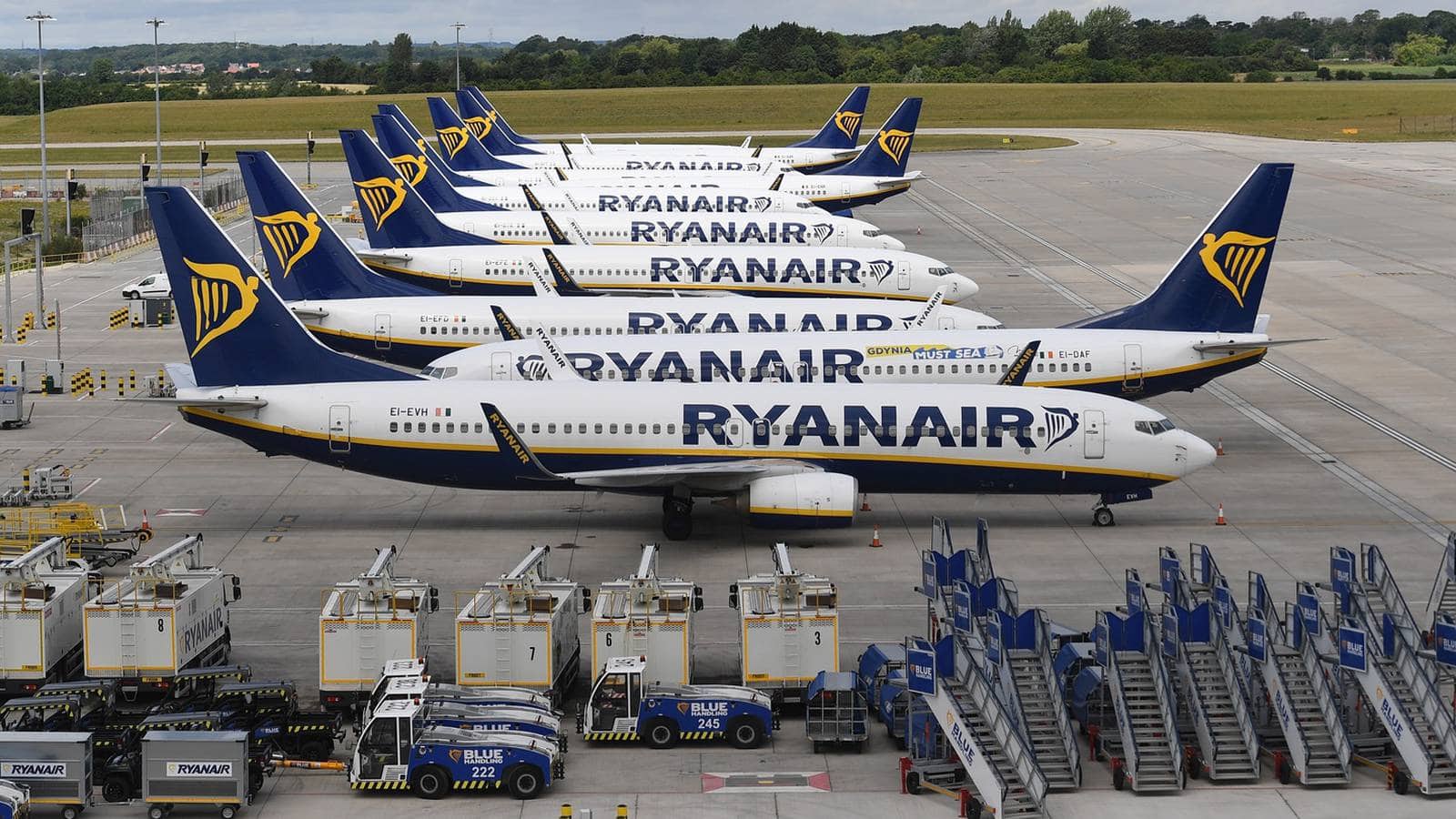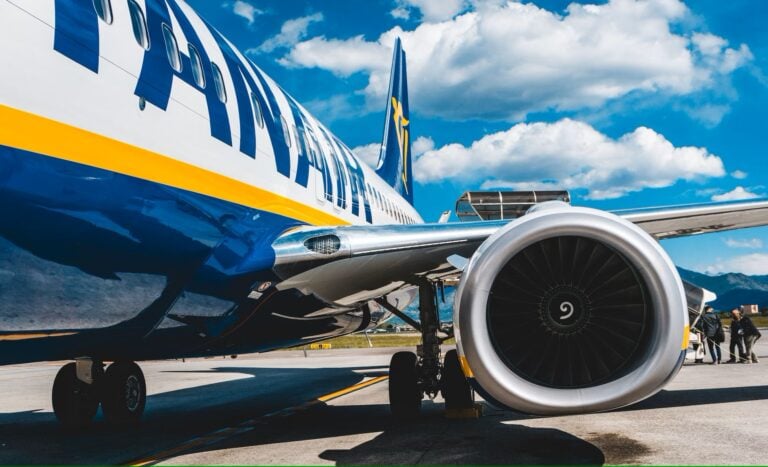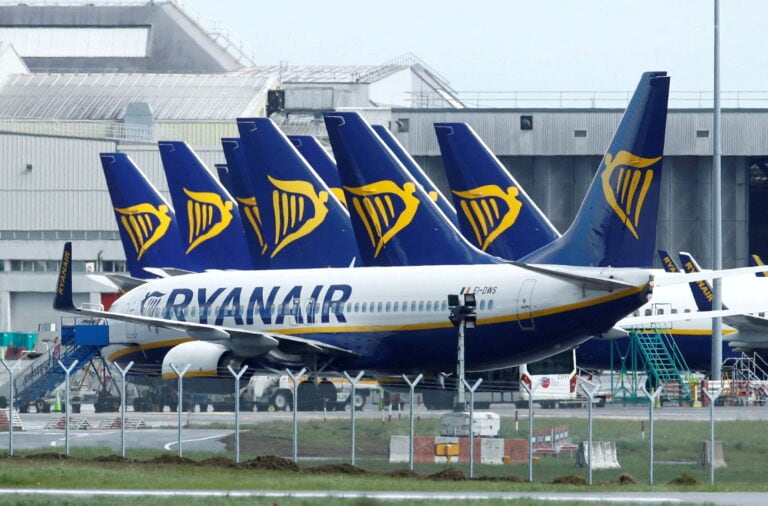Ryanair gets called out for not letting passengers book tickets where they want. We need MDMS now!

Ask 10 random people in an airport which European airline is their favorite. It’s unlikely that Ryanair would be mentioned. Still, the company has a point with its slogan “Europe’s favorite airline”, simply because they serve the largest number of passengers on the continent. In any case, Ryanair is certainly not the favorite airline of consumer and competition authorities in Europe, judging by the endless pile of complaints, investigations and rulings against the low-cost giant in recent years. The Italian Competition Authority has now opened a new investigation against Ryanair, but this case is of a different quality, and emblematic of a larger problem in Europe. Let’s take a look to see why.
Ryanair is dominant on the Italian air travel market: with great powers…
Ryanair is by far Italy’s largest airline, carrying 34% of all Italian passengers (twice as much as ITA). But the airline market is not generally conceptualized as a national one. Rather, it’s about how airlines compete on routes between two specific airports, since travelers generally look for a particular origin and destination when booking their tickets. Here, the facts are striking: Ryanair operates a pure monopoly on over 1000 Italian routes (114 domestic and 910 European) and has a market share of over 50% on a further 370 routes (70 domestic and 300 European). In short, Ryanair has staggering power over large parts of the Italian air travel market, which means it has a particular responsibility not to impede competition on it.
The case
But what is Ryanair doing? To start out, Ryanair essentially refuses to distribute any of its tickets via travel agencies (offline or online). Agreements with travel agencies are usually the norm among airlines and railways, since they allow transport operators to reach more consumers, but Ryanair completely rejects them and likes to bad-mouth travel agencies as “illegal” and “misleading customers”.
Why Ryanair does that? For the AGCM, the airline wants to force customers to use only its own website to sell them non-flight “ancillaries”,like a hotel or car rental. Ryanair makes almost half of its revenue through ancillaries, and a large proportion of that is generated by non-flight ancillaries.
We also believe the fundamental reason behind Ryanair’s rejection of intermediaries is the same motivating other dominant players like Deutsche Bahn to discriminate against travel agents: A dominant transport operator has nothing to gain from being compared to its competitors (from all transport modes). Why should Ryanair allow smaller airlines or railways’ offers to compete with them and be visible to customers in a head-to-head comparison on Online Travel Agencies? Ryanair wants to drive travelers to its website to prevent them from seeing alternative offers in the first place, including offers of other transport modes. It suits Ryanair but it directly hurts consumers who want to compare and combine different air tickets or simply want the assistance of a travel agency to organize their travel. Travel agencies are left with two ways of selling Ryanair tickets:
- Through a “Global Distribution System” (GDS). Think of it as an aggregator of tickets and data that travel agencies can access. But Ryanair intervenes here to make tickets on GDSs significantly more expensive; the AGCM gives one example of a 45% price increase when compared to the Ryanair.com price.In addition, this option is not accessible to Online Travel Agencies.
- By directly booking tickets on Ryanair’s website on behalf of customers, acting as their…agents. But Ryanair has found many ways to make this as difficult as possible such as introducing blocking protocols to detect travel agencies and forcing travel agency customers to go through an invasive facial recognition process (or face a significant surcharge). Ryanair has also sued several travel agencies for going down this path.
It is now up to the AGCM to determine whether Ryanair abused its dominant position by pursuing exclusionary practices which restrict competition. In other words, the investigation will establish whether Ryanair’s conduct consitutes “normal competition (…) from which consumers benefit through lower prices, better quality and a wider choice”. Does Ryanair live up to its special responsibility not to impede fair competition? We have our doubts.
We are not talking only about Ryanair: a systemic problem calls for a systemic solution!
While Ryanair has one of the most aggressive exclusion strategies against travel agencies, some of the addressed practices are commonplace. Surcharging for example, is widespread in the entire industry. Many of Europe’s dominant railways are also currently in hot water with regulators over similar conduct.
To address those issues in a horizontal and consistent way, the EU is preparing a Regulation to facilitate multimodal travel and booking, e.g. combining a plane and train journey. Multimodal travel in Europe can only work if customers can search, compare and combine offers from all modes conveniently online. To give travelers full transparency and convenience, without having transport operators punishing them, the EU will need to build a strong legal framework in the Regulation on Multimodal Digital Mobility Services. The relationship between travel intermediaries and powerful transport operators needs rebalancing, as the AGCM’s statement of objections against Ryanair shows once more.
Proceedings in this case will conclude by 24 December 2024 at the latest.



